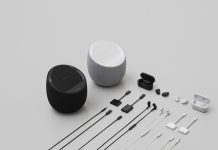![]()
Google are all in on hardware development and have signalled that they are moving even deeper into hardware with the development of their chipset development team. Now they have strengthened their team further with the poaching of another Apple chip team member.
Google have convinced John Bruno, a now former chip designer for five years at Apple, to join their team as a “System Architect”. John Bruno was in charge of Apple’s silicon competitive analysis team whose focus was to ensure Apple’s development stays ahead of other chipmakers.
Bruno joins Manu Gulati, Wonjae (Gregory) Choi and Tayo Fadelu as former Apple chip designers to move to Google’s chipset development team. There are also some former Qualcomm members forming part of that team making it a formidable team for sure. Google are no doubt a bit worried about Android’s (and their own) reliance on Qualcomm and are hoping to make an indent into their Android chipset dominance.
Google is expected to use this in-house knowledge to produce their own chipsets to be used in their Pixel devices in coming years but when this will begin is unknown. One thing for sure, Google aren’t amassing all this talent to do nothing with it. Huawei have shown what they can do with building their own chipsets in-house with the Kirin 970 being the equal of the Snapdragon 835 in our opinion and it includes the bonus of having AI hardware built into it.
The Pixel XL was the best phone of 2016 and the Pixel 2 XL the best of 2017 in my opinion and if Google decide to develop the chipset for their Pixel 3 XL in 2018 I for one cannot wait to see the final product.




I have my doubts about whether or not Google can do pull this off, though they do have a good start with the Pixel cameras.
When they do make their first SoC, I expect it to be very highly optimised, along the same lines as Apple A series chips used for iPhones and iPads and not like the jack-of-all-trades, master-of-none SoCs like Snapdragon.
Please increase single threaded performance massively.
I hope Google have a baseband expert on hand too. Seems Apple, Samsung and Huawei are all still well behind Qualcomm in integrating that.